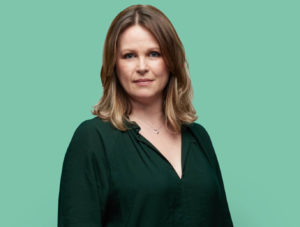How is Xero changing the accountant’s job role?
We’ve seen a big and inevitable shift in the accountancy market. Accountants are still providing their professional oversight, but rather than getting paid for traditional bookkeeping or tax, we are seeing a new generation of accounting services emerging. Accountants with clients using Xero are now playing more of a virtual financial director role in a business.
Most of our clients are sub 10 employees and sub £1m turnover. They don’t yet employ accountants on their payroll or have an FD. Accountants have the opportunity to act as a virtual FD on the behalf of a large number of clients, from the comfort of their own office. It’s good for the client – it’s value they never had before, and it’s good for accountants because they can now bill for more than just accounting and basic compliance.
Since the beginning we’ve embedded the accountant or bookkeeper right at the heart of using Xero. The accountant is more valuable to the client, their data is more up to date, and the client takes a more active interest in managing their affairs. There are data feeds coming in from banks and other service providers, ensuring the data is fresh and up to date.
Accountants with clients using Xero are now playing more of a virtual financial director role in a business.
Would you say that you’ve disrupted the accountancy market?
Disruption is an interesting one. I think accountants are disrupting the accountancy market with products like Xero. There are about 25,000 accountants in the UK, and we’re working with about 3,000 of them. It’s those 3,000 that are disrupting the other 22,000 by coming to their clients with a completely different value proposition. It’s not a race to the bottom or about how cheaply someone can get their tax returns done, it’s actually enabling those accountants to climb up a couple of rungs of the ladder and provide more added value services in a more profitable and scalable way.
If I was an accounting firm and had 500 clients and wanted to act as a virtual FD, I’d spend more time driving to see each client and logging into their individual copies of Sage, or looking at their spreadsheets. That would be completely uneconomical. The cloud brings real scale to that problem in that I can now have 500 clients running on Xero so I can log in remotely, and the data is totally fresh. The whole debate about adding value with technology has been around for over 20 years, but it was only around 10 years ago that the cloud as we know it today matured to the point at which you could build web applications like Xero.
The cloud brings real scale… I can now have 500 clients, log in remotely, and the data is totally fresh.
Is the traditional accounting model dead?
It’s definitely dying; and of course tax returns are going digital now. Roll forward 10 years, will we see the traditional accounting model? No. It will digitised, it will be real time. People will effectively be filing tax returns as they go, not annually. It will be ongoing. VAT will be real-time, payroll is already real-time. Lots of that compliance work is going away and will be completely gone in ten years.
Xero is part of this change. The cloud and digital is impacting every industry, from Airbnb in the hotel market (even though they don’t own any property), to Uber in the taxi market (even though they don’t own any taxis). We spend our time thinking about accountants and small businesses and tax compliance, but actually if you zoom out, the digital revolution is stretching and challenging everything in every industry. Accounting actually stands to change more because its so data intensive. There must be some relationship between the complexity of the model and large amounts of data: very hard, grinding work actually lends itself to these changes.
The cloud and digital is impacting every industry, from Airbnb in the hotel market to Uber in the taxi market.
How is the Xero platform going to evolve over the next ten years?
We have a medium to the long-term ambition of 1 million customers in the UK, which is only 20% of the market. The cool thing is there’s never been a million of anyone on any platform. In ten years’ time, what happens when you have a million customers on Xero, processing all of their data and transactions on a single platform?
Last year in the UK the median number of customers was about 50,000. They processed £25bn of transactions. If you extrapolate that to 1 million customers, we’re looking at £500bn of transactions processed on Xero – every transaction – every taxi fare, every invoice, every bill, every insurance payment, etc, all in one place.
One of the things we’re building this year is a way to start benchmarking business against themselves and other businesses in their area. So if you’re a publishing business in London, and you’re on Xero and your turnover is in ‘this’ bracket and you’re in ‘this’ region, you can benchmark your performance against other businesses in the area and in other regions. In simple terms you’ll be able to see your P+L, and your industry’s (average) P+L.
Traditionally accounting has been looking at what happened yesterday, when actually where you are going tomorrow is much more interesting. By using your data and benchmarking it against other businesses, you can for example see if you’re paying way more fleet insurance than other businesses in your category, or how much more profitable you are compared to your competitors.
Xero will come up and warn you that you’ll have a cash flow squeeze in six weeks because you’ve got some long outstanding debt, and will give you a couple of options – do you want someone to go and chase that debt or do you want to raise some capital? If you want to raise some capital, lenders can then suck the data out of Xero and come back in a couple of hours with a decision of whether they’ll lend you money, and at what rate, and you can have your money in the bank by 5pm that same evening. Xero will be like a health check – do you have a Tesco shopping bag with paperwork that is six months’ out of date, or are you on Xero?
One of the things we’re building this year is a way to start benchmarking against other businesses. In simple terms you’ll be able to see your P+L, and your industry’s (average) P+L.




